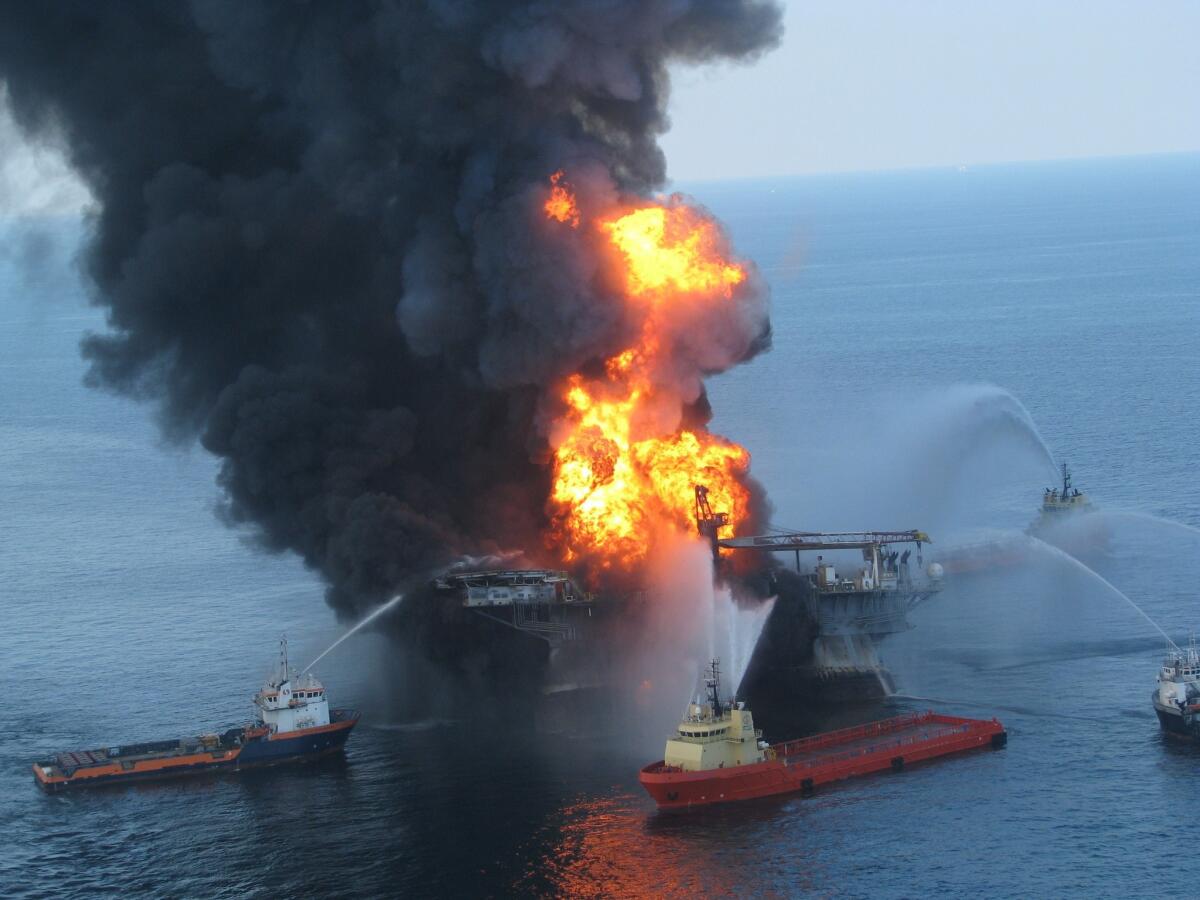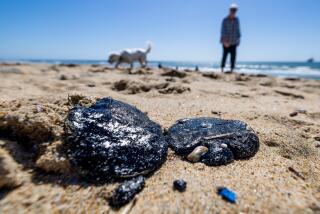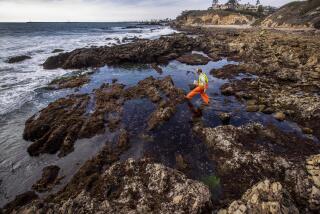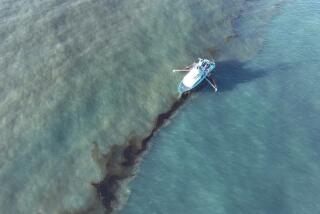Former BP engineer convicted of obstructing probe of gulf oil spill

A former engineer for BP was convicted of obstructing an investigation of the 2010 oil spill in the Gulf of Mexico after the first criminal trial to come from the environmental disaster.
Kurt Mix, a drilling engineer who formerly worked for the oil giant, was convicted on Wednesday of obstructing the investigation into the massive spill but acquitted of a second count of obstruction of justice, Justice Department officials announced. Mix, 52, of Katy, Texas, faces up to 20 years in prison when he is sentenced on March 26.
Mix is one of four current or former BP employees charged with crimes related to the spill, one of the largest environmental disasters in U.S. history. BP took corporate responsibility for its role in the catastrophe earlier this year, pleading guilty in January to manslaughter charges and agreeing to pay a record $4 billion in penalties.
PHOTOS: Gulf oil spill disaster
“This prosecution shows the commitment of the Justice Department to hold accountable those who attempt to interfere with the administration of justice,” acting assistant Atty. Gen. Mythili Raman said in a statement after the verdict was returned in federal court in New Orleans.
The spill began with a fire and explosion on the Deepwater Horizon rig in April 2010. At the time, the rig was drilling into the company’s Macondo well, about 50 miles off the coast of Louisiana and about a mile below the water’s surface. Eleven people died on the rig.
According to the Justice Department, Mix worked on internal BP efforts to estimate the amount of oil leaking from the well and was involved in various efforts to stop the leak. Those efforts included Top Kill, the failed BP effort to pump heavy mud into the blown-out wellhead to try to stop the oil flow.
On May 26, 2010, the day that Top Kill began, Mix estimated in a text to his supervisor Jonathan Sprague that more than 630,000 gallons of oil per day were spilling -- three times BP’s public estimate of 210,000 gallons and a rate far greater than what Top Kill could handle. In October, Mix deleted on his iPhone a text string containing more than 300 text messages with Sprague.
Prosecutors argued that Mix was trying to destroy evidence when he deleted the messages, but defense lawyers said Mix didn’t try to hide anything from the grand jury that investigated.
“We remain as convinced as ever of Kurt Mix’s innocence,” defense attorney Joan McPhee told the Associated Press after the verdict. “We intend to continue to fight to ensure that justice is done in this case.”
Jurors convicted on the count based on the deletion of messages to Sprague, but acquitted on the count relating to messages sent to a contractor.
Jurors deliberated for more than nine hours over three days before reaching the verdict. On Tuesday, the jurors said they were deadlocked, but they were sent back to deliberate on Wednesday, when they returned the verdict.
ALSO:
Georgia Mega Millions winner used family birth dates for her picks
Harvard Medical School fined $24,036 for animal welfare violations
Reno shooter gunned down two doctors, patient at hospital urology clinic
More to Read
Start your day right
Sign up for Essential California for news, features and recommendations from the L.A. Times and beyond in your inbox six days a week.
You may occasionally receive promotional content from the Los Angeles Times.







